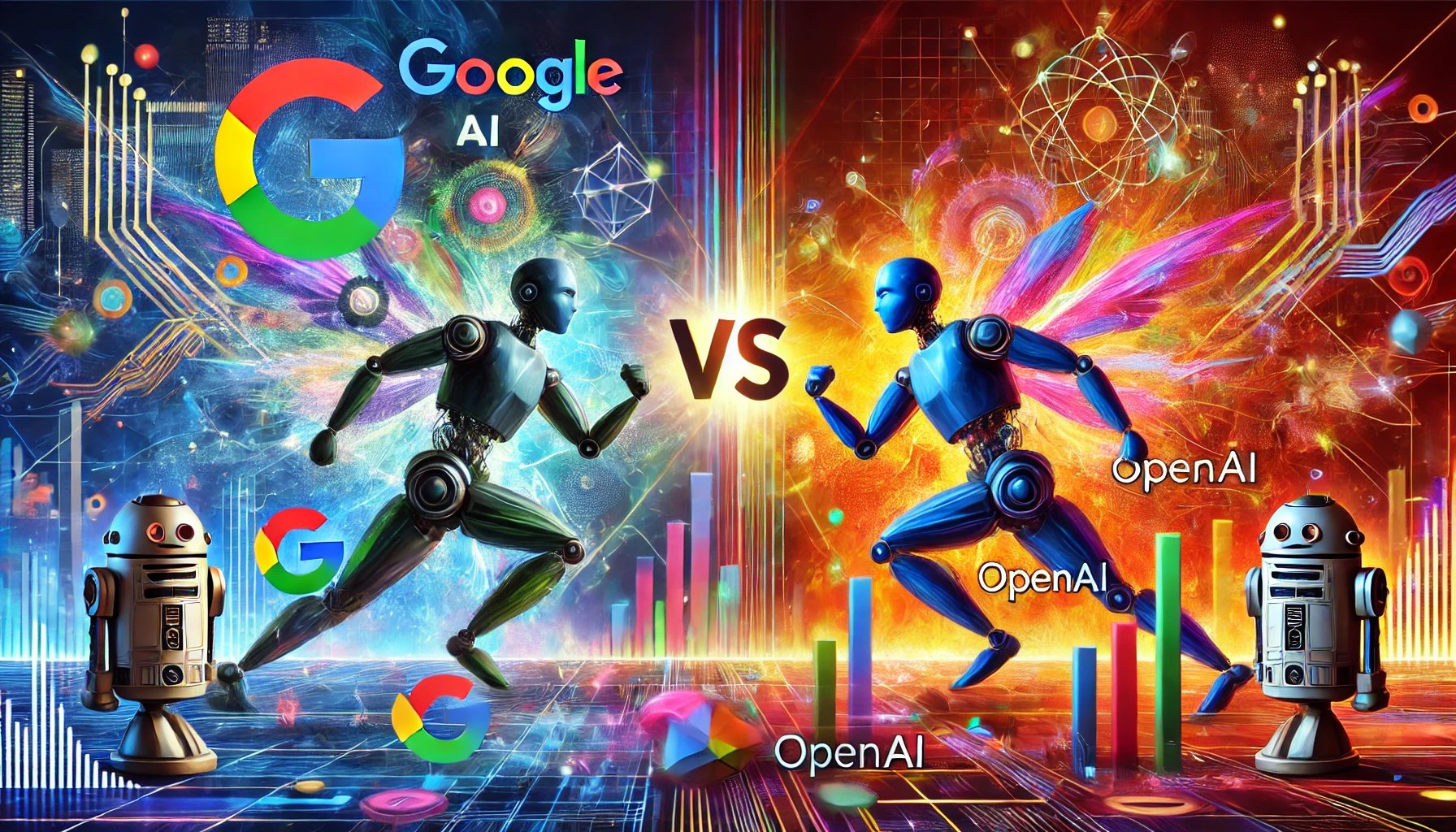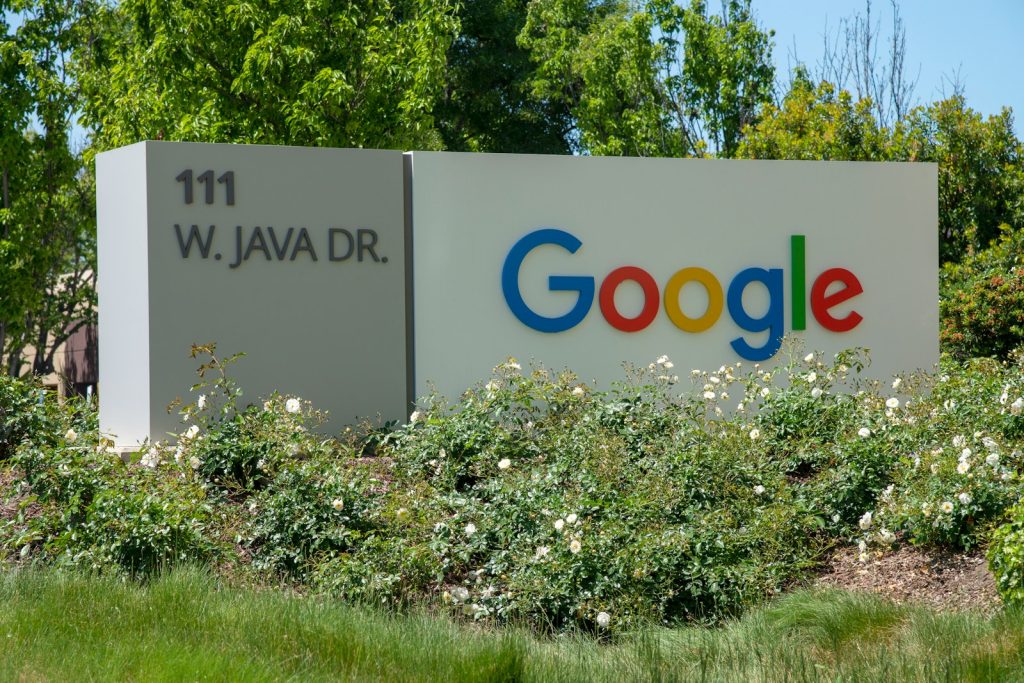Imagine trying to catch up in the AI race and having a car that breaks down every few miles. That’s Google’s current situation with Gemini, their ambitious project to rival OpenAI's conversational AI models like ChatGPT. Despite being one of the most well-funded and powerful tech companies in the world, Google’s latest AI effort has hit a speed bump—and it’s not just a flat tire, it’s almost a full-blown breakdown. But how did we get here? And why are AI developers skipping out on Google’s Gemini?
The AI Race: How Did We Get Here?
Artificial Intelligence is the new frontier—think of it as the gold rush of the 21st century. The big names—Google, OpenAI, Microsoft, and Amazon—are all racing to dominate this field. But while OpenAI is sprinting ahead with models like ChatGPT and DALL-E, Google is tripping over its own feet with Gemini. Developers, who are the engine driving AI’s rise, are simply not flocking to Gemini like they did to OpenAI's tools.
It’s like choosing between a Ferrari and a car that won’t start—you’re going with the Ferrari every time. But what exactly is going wrong? Let’s jump into the core issues plaguing Gemini and what that means for developers, Google, and the future of AI.
What is Google Gemini, Anyway?
Before we delve into why Gemini is struggling, let’s take a look at what it’s supposed to be. Google Gemini is Google's conversational AI platform, built with the goal of being a direct competitor to OpenAI’s ChatGPT. It was designed to power everything from chatbots to virtual assistants to more complex, human-like interactions.
On paper, it sounds great—Google’s got all the resources in the world, a mountain of data, and some of the best AI researchers on the planet, like Samy Bengio and Jeff Dean. Yet, despite all of that, Gemini hasn’t taken off. Think of it as a blockbuster movie with an all-star cast that flopped at the box office.
Developers Are Not Impressed
Here’s the heart of the issue: developers apparently find Gemini too difficult to use. Unlike OpenAI’s plug-and-play style tools like GPT-4 and DALL-E, Gemini is more complicated. We’re talking advanced calculus vs. basic algebra in terms of usability. AI developers want tools that get the job done quickly, efficiently, and without needing a PhD in rocket science.
Core Frustrations with Gemini:
- Poor Documentation: Developers report that the documentation provided for Gemini is either lacking or too complex to be useful. It’s like trying to cook a gourmet meal with a recipe written in code.
- Integration Nightmares: Integrating Gemini into apps is far more challenging than with competitors. Developers find themselves spending too much time debugging rather than innovating.
- Limited Use Cases: While OpenAI’s models can be applied across a wide range of industries, Gemini feels too narrow, limiting its appeal to businesses looking for flexibility.
- Steep Learning Curve: Not every developer has the time or patience to climb the learning curve required to get the most out of Gemini.
Core Differences Between Google Gemini and OpenAI's GPT-4
| Feature | Google Gemini | OpenAI GPT-4 |
|---|---|---|
| Ease of Use | Steep Learning Curve | Easy to Integrate |
| Documentation | Poor, often complex | Clear and Detailed |
| Integration Flexibility | Limited | Wide Application |
| Model Versatility | Narrow Focus | Multi-Industry Support |
| Developer Adoption | Low | High |
Google’s Internal Struggles
It’s not just developers who are frustrated. According to interviews with some Google employees (who probably shouldn’t be spilling the beans but did anyway), even Google's own teams are struggling with Gemini’s complexity.
Internally, there’s talk of confusion over Gemini’s direction, miscommunication between teams, and, worst of all, great difficulty and slowness to fix the problems developers are facing. When you’re in a race as competitive as AI, hesitation can cost you everything—and Google is learning that the hard way.
What’s Working for OpenAI?
OpenAI, on the other hand, is doing more things right. With ChatGPT, they’ve managed to create an AI platform that’s not only powerful but also user-friendly. Developers love it because they can integrate it into their apps without jumping through hoops. Even better, OpenAI’s models have a wide range of applications, from customer service chatbots to creative writing assistants.
Here’s what OpenAI got right:
- Simplicity: It’s easy to use. Developers don’t need to spend days trying to understand how to implement it.
- Robust APIs: OpenAI offers well-documented APIs that make integration a breeze.
- Versatility: The models work well in different industries—whether it’s healthcare, retail, or entertainment, there’s a use case for OpenAI’s AI.
- Constant Updates: OpenAI frequently updates its models, adding new capabilities and fine-tuning performance based on user feedback.
OpenAI Success Factors
- Easy-to-Use APIs
- Extensive Documentation
- Wide Range of Use Cases
- Regular Updates and Improvements
- Cross-Industry Applications
This combination of ease of use and versatility is what keeps developers coming back. It’s the secret sauce that’s driving OpenAI’s success while Google’s Gemini stalls out.
The Stakes for Google
Google cannot afford to lose the AI race. As more businesses and industries adopt AI, controlling that space will be worth billions—if not trillions—of dollars. So why is Google letting Gemini falter?
To put it simply, bureaucracy and complacency. Google is massive, and sometimes, big companies can move like a glacier. They’re trying to innovate in a space that’s moving at the speed of light, and that’s a recipe for failure. If they don’t fix Gemini’s usability issues soon, they risk losing the faith of developers, who are the real drivers of AI innovation.
It’s not just a “Google problem,” though. It’s a Silicon Valley problem. Many big tech companies have fallen into the trap of thinking their brand is enough to carry them forward. In the AI space, that’s just not true anymore.
AI’s Future: Beyond Gemini
The future of AI is going to be shaped by the tools that developers use today. If Google can’t get Gemini in shape, then it will quickly become irrelevant in the space. And let’s be clear: that’s not just bad for Google—that’s bad for competition. The more players there are in the AI game, the better it is for innovation.
Google needs to either overhaul Gemini from the ground up or risk being outpaced by the likes of OpenAI and Microsoft. That’s not just my opinion—plenty of AI experts are saying the same thing.
Potential Consequences for Google:
- Loss of Developer Trust: Once you lose developers, it’s hard to win them back.
- Missed Revenue Opportunities: AI is the future, and if Google doesn’t figure it out, they’re going to miss out on billions.
- Reputation Damage: Google prides itself on being a leader in tech, but failing in AI could tarnish that reputation.
What Google Needs to Do
Let’s face it—Google needs to step up. Here are a few things they should prioritize if they want Gemini to compete with OpenAI:
- Simplify the Platform: Make Gemini easier to use for developers. Focus on creating a user-friendly experience that doesn’t require extensive training.
- Improve Documentation: Clear, concise, and detailed documentation is essential. Developers need a roadmap, not a scavenger hunt.
- Offer Flexibility: Broaden Gemini’s use cases. Right now, it feels too limited compared to what OpenAI offers.
- Frequent Updates: Stay nimble. Google needs to release updates more frequently and ensure that they’re addressing developer concerns.
- Better Communication: Internally, Google needs to align its teams and improve communication. No more mixed messages.
Will Gemini Survive?
It’s not too late for Google to turn things around with Gemini, but they’re running out of time. Developers are the lifeblood of the AI industry, and they’re not willing to wait for Google to catch up. If Gemini doesn’t get a major overhaul soon, we may be talking about it in the past tense, while OpenAI continues to dominate.
The good news? AI is still in its infancy, and there’s plenty of room for improvement and innovation. But Google better act fast—because the race isn’t slowing down anytime soon.
Thought-Provoking Questions:
- Do you think Google can make a comeback with Gemini, or is it too late?
- How much does ease of use impact your decision to adopt new AI tools?
- What’s the most frustrating thing about using current AI models?
Join the conversation in the comments below, and become a citizen of the "Shining City on the Web" by visiting iNthacity.com. Like, share, and participate in the debate!
Disclaimer: This article may contain affiliate links. If you click on these links and make a purchase, we may receive a commission at no additional cost to you. Our recommendations and reviews are always independent and objective, aiming to provide you with the best information and resources.
Get Exclusive Stories, Photos, Art & Offers - Subscribe Today!


























Post Comment
You must be logged in to post a comment.